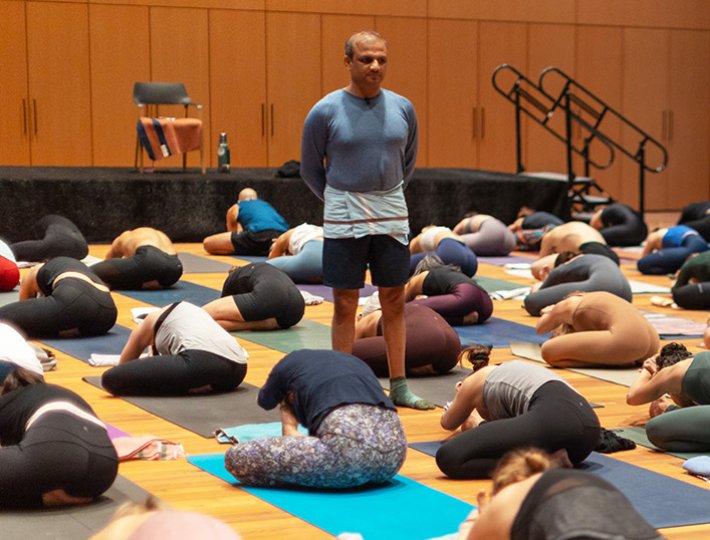At first I don’t see them, because they sound just like me. Just like truth.
“You are going to mess this up. You always mess things up,” they say. “You will fail. You ruined things. You are too old to do that. You are not as pretty as her. You are so dumb.”
They are my inner critic. They sound like a narration behind all my activities, but especially the ones that are challenging, difficult, new, and scary.
Sometimes, when I feel a little stronger, I summon some different voices from the depth to challenge them. Sometimes these voices try and conquer the inner critic by force:
“Shut up! You suck! You are wrong! I will succeed! I am smart! I am pretty!”
Sometimes my inner cheerleader tries to reason with my inner critic:
“Yes, I’ve made mistakes, but this time I really think I can do it. This could all go badly, but I still think I should try? Right?”
During these moments, it becomes an epic back-and-forth conversation between the inner critic and the inner cheerleader. These conversations leave me feeling distracted, frenetic, lonely, and exhausted. All I want to do is escape into my phone or eight hours of Netflix.
Sound familiar? We all carry around inner critics who cause us a lot of pain and suffering. The good news is that Buddhist wisdom offers us a way out of this suffering that is different than running away from it or trying to beat it down with force. The way out is through.
Consider this story from Tibetan Buddhist tradition about a monk named Milarepa: Milarepa lived alone in the mountains. On his way back from gathering wood one day, he arrived at his hut to see it filled to the brim with ferocious demons. Demons were on the table, on the floor—they covered every square inch. Milarepa freaked out. He chased the demons around, screaming and throwing things at them. But they only multiplied and became more ferocious.
Milarepa, terrified, got a hold of himself and switched course. “Okay, fine,” he said to them, “If you don’t want to leave, I will teach you the dharma (path of awakening).” He began to read to them from the Buddhist wisdom texts. After a while, Milarepa peeked up from his book. They were all still there, still terrifying, but now staring at him quietly.
Related: The Fascinating Science of Why You’re So Hard on Yourself
“Okay, okay,” he said. “You win. I surrender. You are allowed to stay. I will try and learn from you. Please teach me what you need to teach me.” One by one, they all disappeared with the exception of one, the largest, most ferocious of them all. Milarepa looked at this demon. The demon looked back, growling and snarling with his enormous jaws and fangs. Milarepa walked up to the demon and slowly laid his head down inside the demon’s mouth. The demon stepped back, bowed low to Milarepa, and disappeared.
Our inner demons are just as ferocious and tenacious as Milarepa’s. We live with them in the tiny huts of our minds, and they make us miserable and afraid. Yelling at them and cursing them out will never work. Reasoning with them by trying to use our inner cheerleader and relentless positivity will also never work. Listening to them and learning from them will get us a lot farther, but ultimately, we have to go deeper. We have to go as close as possible to our scariest demon, our meanest inner voice, and surrender.
What might that look like in real life? One of my life-long demons is jealousy. I have struggled with feeling jealous of other people whom I perceive to have more than me, that get more attention than me, or seem better than me in some way. This mostly comes out in relationships, where I have made many partners feel terrible with accusations and fights.
At the same time, for years, I felt so deeply ashamed of that jealousy and so horrified by it that I tried really hard to repress it (“Stop it, Yael! You are being ridiculous!”), to reason with it (“Jealousy is not helpful in this situation”), and even, begrudgingly, to co-exist with it in times of meditation (which has helped, but not entirely). Like Milerapa, the only times my jealousy has actually subsided in major ways have been when—as lovingly as possible—I went as close as possible to the feeling to see what was there.
What did I see when I got real close and cozy? What was in my jealousy? A tremendous fear of not being enough. The deep well of pain from feeling neglected and unseen as a child. Panic about the scarcity of love and my fear of not getting any. When I looked at these pains and fears, my heart opened to the jealousy and the poor little one inside who was feeling it. I tried to mentally wrap my arms around her. “Poor baby,” I said to myself. “Poor jealousy. I’m sorry I’ve been so cruel to you. I am here for you now.”
What does your inner critic look like? What are your pesky, ferocious, terrible demons? Can you summon the bravery to come closer, put down your weapons, and open your heart?











Comments (0)